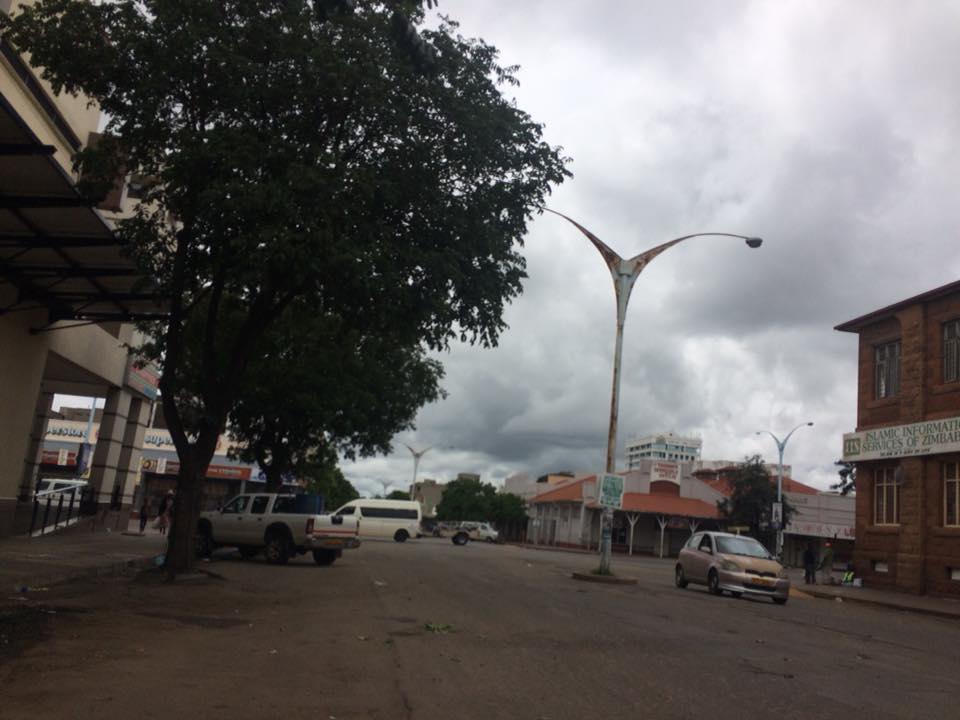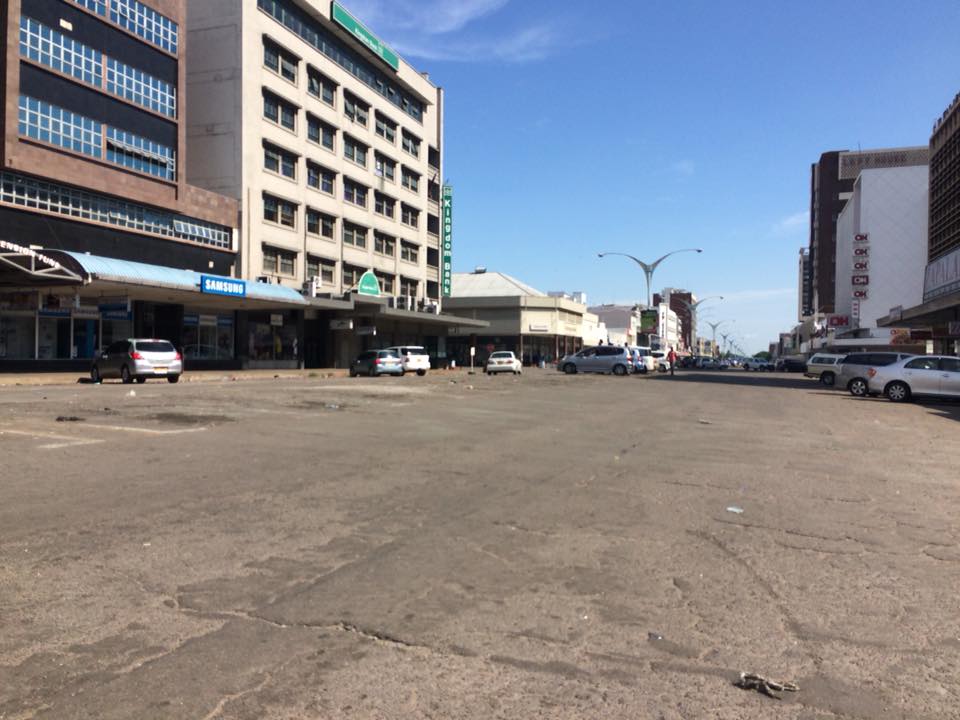Economy of Bulawayo
Bulawayo is the second-largest city in Zimbabwe, located in the southwestern part of the country. It has a rich history as an industrial hub, with a diverse range of industries that have contributed to its economic growth over the years.
One of the key industries in Bulawayo is manufacturing. The city is home to a number of manufacturing companies that produce a wide variety of products, including textiles, clothing, footwear, chemicals, and plastics. These companies have provided employment opportunities for many people in the city and have helped to drive economic growth.
Another important industry in Bulawayo is the automotive industry. The city has a number of vehicle assembly plants, as well as a number of companies that produce automotive parts and accessories. The automotive industry has been a major contributor to the city’s economy and has provided employment for many people.
In addition to manufacturing and the automotive industry, Bulawayo also has a strong service sector, with a range of businesses providing services such as banking, insurance, and healthcare. These businesses have also played a significant role in the city’s economy and have contributed to its growth.
Overall, the industrial economy of Bulawayo has been an important driver of economic growth in the city and has provided employment and opportunities for many people. It has helped to establish Bulawayo as a major economic center in Zimbabwe and has played a key role in the city’s development.
Main Industries
One of the main industries in Bulawayo is the manufacturing industry, which includes a range of companies that produce a variety of products. Some of the products that are manufactured in the city include textiles, clothing, footwear, chemicals, and plastics. Many of these products are exported to other countries, helping to drive economic growth in the city.
The automotive industry is another key contributor to the industrial economy of Bulawayo. The city has a number of vehicle assembly plants, as well as a number of companies that produce automotive parts and accessories. The automotive industry has provided employment for many people in the city and has contributed to economic growth.
In addition to manufacturing and the automotive industry, Bulawayo also has a strong service sector, with a range of businesses providing services such as banking, insurance, and healthcare. These businesses have also played a significant role in the city’s economy and have contributed to its growth.
Overall, the industrial economy of Bulawayo has helped to establish the city as a major economic center in Zimbabwe. It has provided employment and opportunities for many people and has contributed to the city’s development. However, like many other cities, Bulawayo has faced challenges in recent years due to economic downturns and other factors. Despite these challenges, the city’s industrial economy remains an important contributor to its economic growth and development.

Economic Downturns
Zimbabwe, and specifically Bulawayo, has faced a number of economic challenges in recent years. Some of the main factors that have contributed to economic downturns in the country include:
- Inflation: Zimbabwe has a history of high inflation, which has made it difficult for the country to maintain a stable economy. Inflation can lead to a decrease in purchasing power, making it harder for people to afford basic goods and services.
- Currency devaluation: The Zimbabwean dollar has faced devaluation in recent years, which has made it harder for the country to trade with other countries and has impacted its overall economic growth.
- Political instability: Political instability can have a negative impact on a country’s economy, as it can discourage investment and make it harder for businesses to operate.
- Drought: Zimbabwe has faced drought in recent years, which has had a negative impact on the country’s agricultural sector and overall economy.
These economic challenges have affected many sectors of the economy in Bulawayo and have made it difficult for the city to maintain a strong and stable industrial economy. Despite these challenges, the city’s industrial sector remains an important contributor to economic growth and development.
Other Downturn Factors
There are a number of other factors that have contributed to economic downturns in Bulawayo and Zimbabwe more broadly. Some of these include:
- Unemployment: High unemployment rates can have a negative impact on the economy, as it can lead to a decrease in consumer spending and make it harder for people to afford basic goods and services.
- Lack of access to credit: A lack of access to credit can make it difficult for businesses to operate and can hinder economic growth.
- Poor infrastructure: Poor infrastructure, such as inadequate roads and lack of access to electricity, can make it difficult for businesses to operate and can hinder economic growth.
- Corruption: Corruption can have a negative impact on the economy, as it can discourage investment and make it harder for businesses to operate.
- Lack of skilled labour: A lack of skilled labour can make it difficult for businesses to operate and can hinder economic growth.
These are just a few of the many factors that can contribute to economic downturns in a city or country. Despite these challenges, it is important for cities and countries to find ways to address these issues and promote economic growth and development.

How Can a City Come back From a Downturn?
There are a number of ways that a city can try to come back from an economic downturn. Some strategies that cities can use include:
- Diversifying the economy: Diversifying the economy by promoting the development of new industries or sectors can help a city to become less reliant on any one particular industry. This can help to mitigate the impact of economic downturns in specific sectors.
- Investing in infrastructure: Investing in infrastructure, such as roads, airports, and ports, can make a city more attractive to businesses and can help to stimulate economic growth.
- Attracting new businesses: A city can try to attract new businesses by offering incentives such as tax breaks or grants. This can help to stimulate economic growth and create new job opportunities.
- Promoting tourism: Promoting tourism can be a way for a city to generate revenue and stimulate economic growth. This can be done through marketing campaigns, the development of tourist attractions, and the improvement of infrastructure.
- Encouraging entrepreneurship: Encouraging entrepreneurship and supporting small businesses can help to stimulate economic growth and create new job opportunities. This can be done through initiatives such as business incubators or mentorship programs.
Overall, there are many strategies that a city can use to try to come back from an economic downturn. The specific strategies that are most effective will depend on the specific circumstances of the city and the economic challenges it is facing.
Promoting The Economy of Bulawayo Through Decentralisation
Decentralization refers to the process of transferring power and decision-making authority from the central government to lower levels of government, such as local or regional governments. Decentralization can be a way for a government to promote economic growth in several ways:
- Improved efficiency: Decentralization can lead to improved efficiency in the delivery of public services, as it can allow local governments to tailor their policies and programs to the specific needs and circumstances of their communities.
- Increased participation: Decentralization can increase participation in the decision-making process, as it can allow local communities to have a greater say in the policies and programs that affect them. This can lead to increased trust in government and can encourage more people to get involved in the local economy.
- Greater accountability: Decentralization can lead to greater accountability, as it can allow local governments to be held more accountable for their actions by the communities they serve. This can help to promote transparency and improve the effectiveness of government programs.
- Economic development: Decentralization can promote economic development by allowing local governments to take the lead in promoting economic growth and development in their communities. This can include initiatives such as attracting new businesses or promoting tourism.
Overall, decentralization can be a powerful tool for promoting economic growth and development, as it can allow governments to be more responsive to the needs and circumstances of their communities and can encourage greater participation and accountability.
What is The Difference Between Devolution and Decentralisation?
Devolution and decentralization are similar in that they both refer to the transfer of power and decision-making authority from the central government to lower levels of government. However, there are some key differences between the two concepts.
One key difference between devolution and decentralization is the extent to which power is transferred. Devolution typically involves the transfer of significant powers and responsibilities from the central government to subnational governments, such as regional or local governments. This can include powers related to policy-making, resource allocation, and the delivery of public services.
Decentralization, on the other hand, can encompass a wider range of power transfers and can involve the transfer of authority to a variety of different levels of government, including regional, local, and even community-level governments. Decentralization can also encompass the transfer of authority to non-governmental organizations and other private sector actors.
Another key difference between devolution and decentralization is the level of autonomy that is granted to subnational governments. Devolution typically involves the granting of a high degree of autonomy to subnational governments, while decentralization can encompass a wider range of autonomy levels.
Overall, both devolution and decentralization can be used as tools to promote economic growth and development. This allows local governments to be more responsive to the needs and circumstances of their communities.
Concluding thoughts.
Bulawayo has a long road ahead when it comes to improving its economic growth and development. From encouraging more participation from her citizens, to increasing accountability through greater practices of devolved governance. The promise of devolved governance may be the key driving factor towards a more prosperous economy throughout Zimbabwe. This would give each region greater accountability to drive real change and development.
#News in Bulawayo #News in Zimbabwe Artist Arts BCC Bulawayo Bulawayo City Council Bulawayo economy Bulawayo industry Bulawayo news Bulawayo Police Bulawayo Water Bulawayo Water Crisis Bulawayo Women entrepreneurship Business Women Cholera Community Culture Currency Drug Abuse Drugs Economy Farmer Farmers Farming Informal Sector Informal Traders Mining MSMEs Music News in Bulawayo News in Zimbabwe Police Police in Bulawayo Vendor Vendors water Water Crisis Water Shortage water supply issue Women entrepreneurship ZESA Zimbabwean economy Zimbabwe news Zimbabwe water crisis ZRP
Our stories told by us!
Keywork words: News in Bulawayo, News in Zimbabwe












